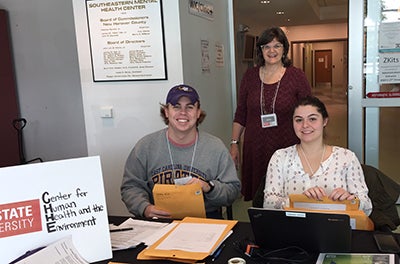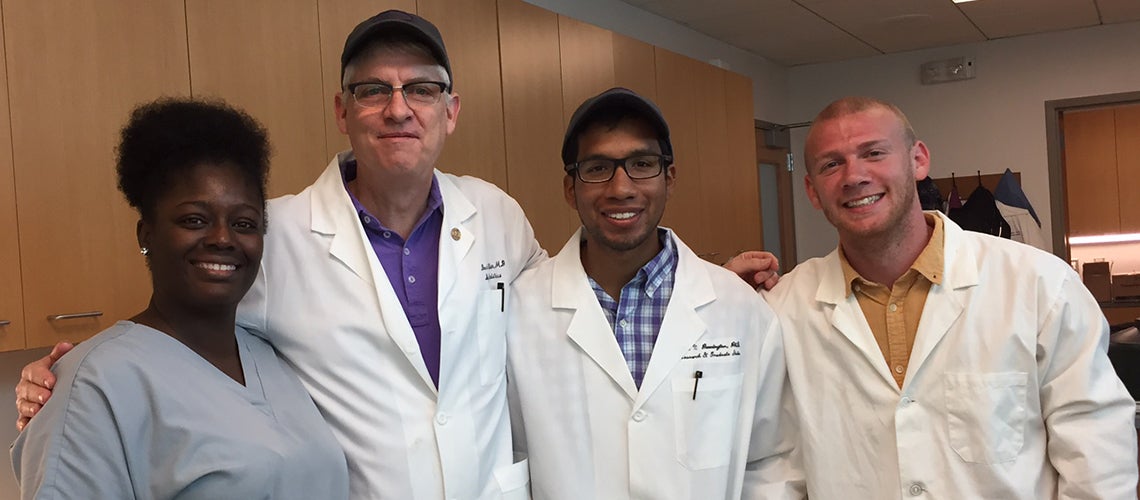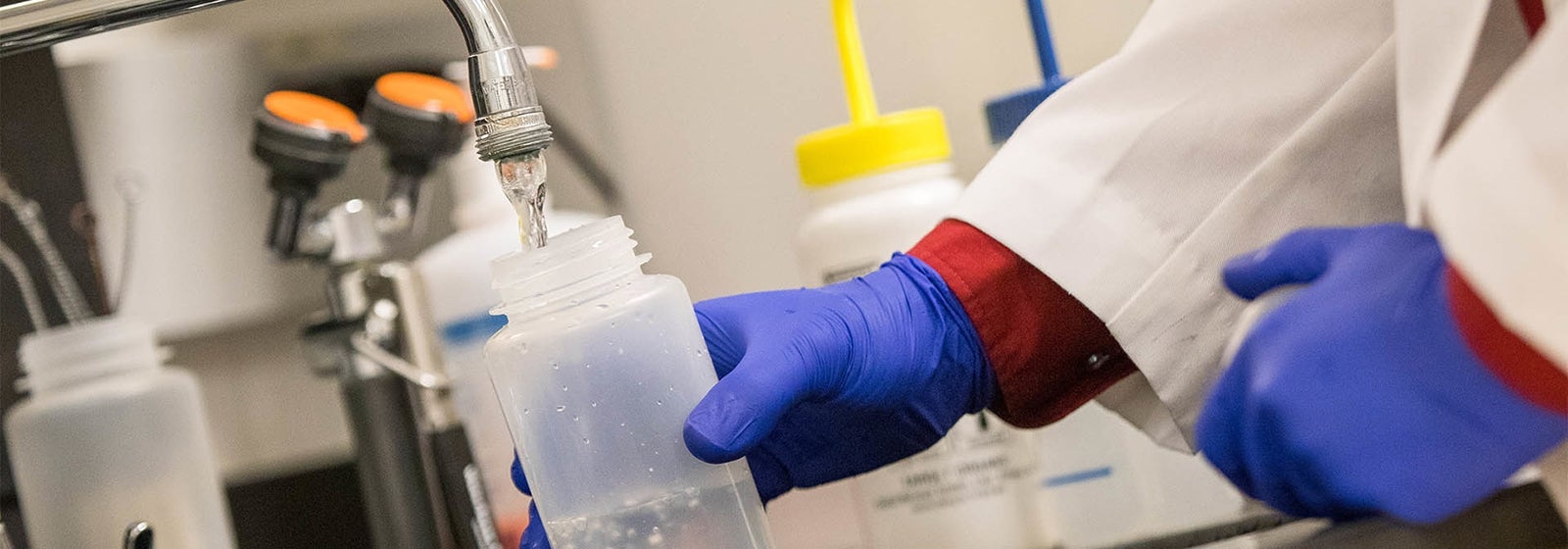CONTAMINATION COLLABORATION
Researchers study health impact of GenX
Some projects are too important – and cover too many disciplines – for one researcher to tackle alone. That’s why a study of the potential health impacts of GenX on residents of the Cape Fear region includes multiple faculty members and students from East Carolina University and N.C. State University, as well as community partners Cape Fear River Watch and the New Hanover County Health Department.
GenX is a chemical generated in the production of nonstick coatings for cookware. In early 2017, GenX was detected in North Carolina’s Cape Fear River, which serves as a drinking water source for around 300,000 residents in the lower Cape Fear River basin, including residents of New Hanover, Brunswick and Pender counties. Although the chemical is no longer being discharged into the river, measurable amounts of GenX are still being found in drinking water.
Little is known about how GenX is stored in the body, the toxicity of GenX or how long the chemical will remain in the environment. The National Institute of Environmental Health Sciences has awarded a two-year, $275,000 grant to address these questions. Jane Hoppin, associate professor of biological sciences and deputy director of N.C. State’s Center for Human Health and the Environment (CHHE), is the primary investigator on the project.
The study will look at samples of drinking water, blood and urine from 400 volunteers, as well as a survey about their water use and health history.
“We’re going to get water from the people’s homes, so we’ll be able to look at what their exposure is and compare that to what’s in their bodies,” said Jamie DeWitt of the ECU Department of Pharmacology and Toxicology. “A lot of times we miss that piece … because we can’t get that information. We have been monitoring the river so we know what’s in the river water. We’ll know what’s in the [drinking] water, so we’ll be able to look at those relationships between exposure and concentration in the body.”

ECU students Gabriel Sergio-Beattie (left) and Natalie Cataldo visited Wilmington along with N.C. State’s Dr. Jane Hoppin (back) to collect samples and surveys from study participants. (Contributed photos)
As a toxicologist, DeWitt is looking at the data from the blood and urine samples in comparison to existing data from animal samples. David Collier of the Brody School of Medicine’s Department of Pediatrics helps evaluate the samples, while Suzanne Lea of the ECU Department of Public Health is helping with the community component, forming partnerships with study participants and public health officials.
Lea, Collier and several students from the master’s of public health program visited Wilmington in November to collect the first round of samples and surveys.
“We collected consent forms and interviewed about 50 people out of the 400 who will participate in the study,” Lea said. Thanks to her connection with New Hanover County Health Director Phillip Tarte, the team was able to use his facility to conduct interviews and take samples.
All results from the study will be shared with the community and individual study participants.
“Dr. Lea and Dr. Collier will play critical roles in conveying information back to the people who were a part of the study,” DeWitt said. “They deserve to know what’s happening in their bodies.”
GenX is a member of a group of perflourinated compounds, which are known toxic substances that have long half-lives in the body, DeWitt said. “It was thought that GenX, which is a replacement, wouldn’t be a problem because it has a shorter half-life.”
However, it could still remain in the body for some time — possibly as much as several days. And continual exposure such as in drinking water means it could build up in the body. There has been very little scientific study of the compound’s toxicity in vertebrate organisms, DeWitt said.
“So we, as the general public, don’t have a lot of information on what exposure to this compound could do,” she said. “We have people who have been getting exposed. They’re frightened. They’re concerned about health effects because they’ve been reading information about the related chemicals.
“Here in the United States, we expect that our water is of the highest quality. We shouldn’t have to choose not to drink our water.”
Other co-investigators at N.C. State include Detlef Knappe, professor of civil construction and environmental engineering; Katy May, CHHE community outreach director; and Rob Smart, William Neal Reynolds Distinguished Professor of Toxicology and CHHE director.
“We have epidemiologists, an analytical chemist, toxicologist, all these people working together,” said DeWitt. “This is not a project that one individual can accomplish, or that one institution can accomplish. These complex environmental problems require complex professional partnerships so that we can provide adequate information to better protect public health.”

A partnership with health officials in New Hanover County enabled the co-investigators to utilize exam rooms for conducting interviews and taking samples.
